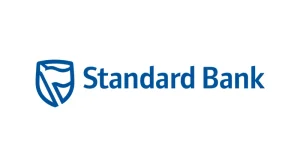
Australia Jobs for Nurses Sponsored by Foreigners Through VISA
Australia Jobs for Nurses Sponsored by Foreigners Through VISA
Australia Jobs for Nurses Sponsored by Foreigners Through VISA. Australia is known for having one of the greatest healthcare systems in the world. Consequently, there is a huge need for licensed nurses across the country. A nurse position in Australia might be an excellent opportunity for foreigners to learn about cutting-edge medical technology and procedures while also experiencing living overseas. However, navigating the immigration and sponsorship processes can seem challenging. An extensive overview of the process for foreigners requiring visa sponsorship to find and apply for nursing positions in Australia is provided on this page.
The nursing registration requirements in Australia
- Nurses must adhere to AHPRA’s registration standards.
- Under the National Registration and Accreditation Scheme, AHPRA is in charge of regulating the health professions.
Australia’s nurse registration requirements
- Hold a three-year Bachelor of Nursing program certification and a valid nursing license.
- Possess current professional experience and satisfy current practice standards.
- Possess a valid score for language proficiency in English.
- Respect the criteria for ongoing education, professional liability insurance, recent practice history, and criminal history.
- Clear a national nursing exam that has been approved by the Nursing and Midwifery Board of Australia.
- Fill out your application to become a registered nurse in Australia.
Procedures for General Skilled Migration Visas
After fulfilling the registration criteria, the next step is to obtain the appropriate visa. To dwell and practice nursing in Australia, one can become qualified in a number of ways:
1. Australia’s Independent Skilled Visa (Subclass 189)
- Permits long-term employment and residency.
- The criteria for eligibility include age, employment history, English proficiency, and talent.
- It is not required to have sponsorship.
2. Overview of the Subclass 190 Skilled Nominated Visa
- Permits permanent residency and employment in a specific Australian state or territory.
- Needs sponsorship from the employer and the state or territorial government.
- Less points are needed than for a skilled independent visa.
3. Subclass 491: Provisional Skilled Regional Visa
- Permits living and working in regional Australia for a maximum of five years.
- It needs to be sponsored by a distant relative or nominated by a state or territorial administration.
- Possibility of long-term residency.
- Visa agencies help choose the best course of action.
Finding Nursing Employment Opportunities and Sponsoring Visas
Many nursing positions in Australia support the visas of overseas applicants. The subsequent guidance may assist you in identifying appropriate roles:
- Use job boards such as Indeed, Seek, and LinkedIn to find job posts related to visa sponsorship.
- Seek out employment agencies that specialize in the healthcare sector and frequently work with sponsors.
- Go straight to the websites of hospitals and healthcare facilities to look for nurse vacancies.
- Become involved with Australian foreign nursing groups and make connections with recruiters on LinkedIn.
- Attend job fairs, seminars, and networking events in search of open employment.
- For talent lists and sponsorship opportunities, visit the websites of the state and territory governments.
- Make use of every resource at your disposal—not just job postings.
Popular Australian Nursing Jobs Eligible for Sponsorship
Australia’s healthcare sector has a great need for qualified nurses, and many nursing jobs sponsor foreign nationals. Here are seven popular nurse job types that are sponsored, together with relevant data like wage ranges and other key details:
1. Australia’s Need for Registered Nurses
- There is a huge need for registered nurses.
- Hospitals, assisted living facilities, and community health organizations all provide sponsorship options.
- The compensation scale for a year is AUD 65,000 to AUD 90,000.
2. An Overview of Registered Nurses
- Necessary for patient care when an RN is in charge.
- Supported by hospitals, assisted living centers, and primary care clinics.
- The compensation is paid out in an annual salary range of AUD 50,000 to AUD 70,000.
3. Overview of Nurse Practitioners
- Master’s degree holders in advanced practice nursing.
- Able to make diagnoses, give prescriptions, and supervise patient care.
- Frequently encountered in remote healthcare, specialty clinics, and hospitals.
- Salary range for an average year: AUD 100,000–150,000.
4. Overview of the Role of the Critical Care Nurse
- Specialists in giving prolonged care in intensive care units and emergency departments.
- Supported by sizable tertiary hospitals and specialty medical institutions.
- The remuneration is between AUD 80,000 and AUD 110,000 per year.
5. Role of a Mental Health Nurse
- Provides therapy, counseling, and medication management.
- Sponsored by community mental health centers, psychiatric hospitals, and rehabilitation facilities.
- Salary range: AUD 70,000–AUD $100,000 on average per year.
6. Overview of the Midwifery Role
- Knowledgeable about supporting expectant mothers, new mothers, and postpartum women.
- Supported by community health organizations, maternity hospitals, and birthing centers.
- The compensation scale for a year is AUD 75,000 to AUD 100,000.
7. Australian nursing instructor
- Instructs and prepares students and professional nurses.
- Supported by academic institutions, medical centers, and career training centers.
- Makes a yearly salary of AUD 80,000 to AUD 110,000.
- Draws international nurses looking for rewarding jobs in healthcare.
- Provides a range of professional options in education, mental health, and acute care.
The Top 5 States in Australia for Nursing Jobs
Healthcare workers are needed nationwide, and some states are more desirable than others to work as nurseries. Let’s look at five of the top states in Australia for nursing careers:
1. NSW: Career Opportunities for Nurses
- Sydney’s home.
- A hub for community, mental health, acute care, and geriatric nursing positions.
- Home to prominent medical research facilities, hospitals, and community health centers.
2. Jobs for nurses in Victoria, Australia
- Recognized for its diverse culture and thriving healthcare industry.
- Prestigious hospitals, tertiary care centers, and specialist clinics may be found throughout Victoria’s capital.
- provides a range of employment options across specializations and practice settings.
3. Queensland: Central Area of Nursing
- Renowned for its tropical setting and beaches.
- Important medical facilities are located in Brisbane and the Gold Coast.
- Offers nurses fulfilling employment.
4. Western Australia: Nursing Attraction
- A flourishing economy and a variety of scenery.
- Medical institutions and teaching hospitals are located in Perth, the nation’s capital.
- The surrounding areas provide distinctive experiences with rural and remote healthcare.
5. Opportunities for Nurses in South Australia
- Renowned for its laid-back way of life and wine regions.
- Adelaide, the capital, is home to esteemed healthcare facilities, research centers, and specialized hospitals.
- Opportunities in oncology, critical care, and palliative care.
- A robust healthcare system, a diverse geographic area, and strict patient care guidelines.
- States vary in what advantages and experiences they offer nursing practitioners.
The Complete Manual for Hiring Nurses in Australia
Finding positions as visa sponsors is one thing, but getting recruited is quite another. A few best practices are as follows:
- Make sure qualifications are up to par with local standards by having them officially assessed by the Australian Nursing and Midwifery Accreditation Council.
- As soon as possible, take the OET and IELTS nursing registration tests.
- In both resumes and interviews, emphasize your clinical experience, patient treatment background, and nursing specialization.
- Obtain referrals from prior employers that demonstrate your clinical expertise.
- In interviews, give strong justifications for your decision to relocate to Australia.
- If you want to sponsor a visa more easily, think about working in rural or regional areas.
- Prioritize applying for temporary positions over permanent ones.
- When applying for a job or a visa, have patience and be flexible.
Organizations that Recruit Nurses and Assist with Visa Sponsorship
Specialized nurse recruiting companies could be very useful partners in your Australian job search. They already have ties to businesses that are open to hiring foreign sponsors.
Top health employment firms:
- The top health staffing company in Australia, Momentum Health Nurse, West Complete Healthcare Global Health
- MediServe HealthX Nursing
- Provide thorough talent assessment, registration, documentation for visas, and assistance with relocation.
- Reliable recruiting partners can help you save time and headaches.
Suggestions for Australians Thinking About Changing into Nurses
Once you have secured your dream nursing job in Australia, you must prepare to move seamlessly into the nation’s nursing profession. A few best practices are as follows:
- Thorough knowledge of the medical center’s amenities, specializations, and organizational culture.
- Familiarity with procedures, medications, devices, and mapping methods.
- Recognizing privacy laws, standards for workplace safety, and healthcare practice recommendations.
- Recognizing Aboriginal and Torres Strait Islander people’s health needs and cultures.
- Establishing relationships with foreign nurses to provide social assistance.
- Making use of the employer’s orientation program to become acquainted with policies and procedures.
- Observing throughout onboarding from seasoned mentors in nursing.
- Ongoing education, questioning, and feedback all contribute to continuous learning.
- Recognizing that it takes time to get used to a new work culture.
Advantages of Nursing in Australia
For nurses, Australia is a popular place to work because it offers a lot of benefits. To start with, nurses in Australia are paid more than nurses anywhere else in the world. Secondly, there are opportunities to gain experience with cutting-edge technologies in premier healthcare facilities.
- A top-notch healthcare system improves the credentials and experience of nurses.
- Provides options for specialization, continuing education courses, and professional growth.
- Offers high living standards and a great work-life balance.
- Provides competitive base pay rates, support for childcare, penalties for overtime and shift work, and superannuation contributions.
- Offers a yearly leave of four weeks.
- Permanent residents are covered under the universal healthcare scheme.
- Excellent for nurses because of reputable hospitals, great nurse-patient ratios, chances for career progression, and a remarkable way of life.
In summary
Internationally trained registered nurses can advance in their careers and gain knowledge of Australia’s cutting-edge best practices. Strict registration and sponsorship requirements necessitate diligent work in order to secure a nursing position. There are several opportunities in a variety of healthcare settings for foreign nurses who put themselves out there. By being adaptable, highlighting your experience, and utilizing all of the resources at your disposal, you can succeed in your career as an Australian nurse. Time and effort are required, but in the end, the process produces an invaluable experience.

